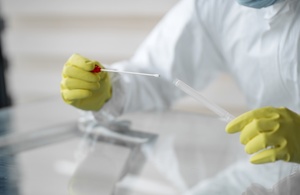G7 health ministers unite to protect world from another pandemic
G7 health ministers agree to pandemic pact to help protect the world against another pandemic.

- Commitments also made on tackling antimicrobial resistance (AMR) – a global killer costing millions of lives a year
- Focus on climate and health will see G7 countries lead the way in reducing greenhouse gases and improving health and wellbeing
A landmark pact signed by G7 health ministers in Berlin will help ensure the world is better prepared for future pandemics.
The G7 Pact for Pandemic Readiness will see the UK, USA, Japan, Canada, France, Germany and Italy work more closely together – and with relevant multilateral organisations like the World Health Organization – by sharing the best of their COVID-inspired initiatives, including those on surveillance and rapid response.
Commitments were also made by health ministers to tackle the silent pandemic of antimicrobial resistance AMR – infections caused by bacteria resistant to antibiotics – including exploring a range of market incentive options which will encourage pharmaceutical companies and others to fund research and trials for new antibiotics.
Pledges on climate and health were also made with G7 members committing to build climate-neutral health systems by 2050 at the latest, and to support countries across the globe in this effort.
Speaking from Berlin, UK Health and Social Care Secretary Sajid Javid said:
This meeting was a crucial moment for G7 member countries as we learn the lessons of COVID and how to live with the virus.
I am committed to ensuring we are all better prepared against future health threats including another pandemic and antimicrobial resistance, which is why it was so important we united today to protect the world’s health.
The UK is leading the way with our living with COVID approach, and it was great to exchange ideas with my G7 counterparts on how we all move out of the pandemic.
The pandemic pact aims to help embed a One Health approach, which considers the connection between people, animals, plants, and the environment, to help identity emerging health threats across these groups, and improve detection of new variants of concern. This will help strengthen global health security and better protect everyone from another pandemic
AMR is estimated to cause 1.27 million deaths a year worldwide – around 1 in 5 deaths are among children under 5 – making it a leading cause of death globally.
The G7 health ministers meeting took place in Berlin from Thurs 19 May to Friday 20 May and concluded with the signing of the G7 Health Ministers’ Declaration.
The declaration has sections on:
- the G7 Pact for Pandemic Readiness
- overcoming the pandemic in 2022
- tackling the silent pandemic of AMR
- climate-neutral health systems